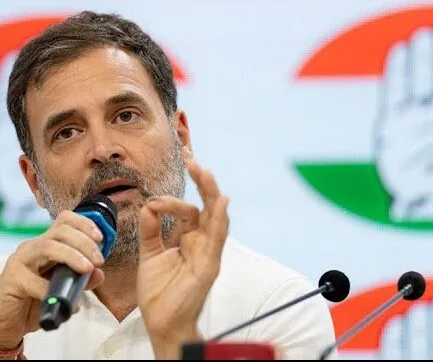BJP defends scheme as a continuation of UPA’s administrative reforms
Congress leader Rahul Gandhi’s recent criticism of the lateral entry scheme has prompted a sharp response from the BJP. Gandhi accused the Modi government of using lateral entry to recruit officers loyal to the Rashtriya Swayamsevak Sangh (RSS) instead of through the Union Public Service Commission (UPSC). He claimed this undermines reservations for SC, ST, and OBC categories.
Union Minister Ashwini Vaishnaw countered these allegations, asserting that the lateral entry concept was initially developed under the Congress-led United Progressive Alliance (UPA) government. He noted that the second Administrative Reforms Commission (ARC), established in 2005 and chaired by Veerappa Moily, recommended the scheme as a way to introduce specialized expertise into the government.
Embed from Getty ImagesVaishnaw emphasized that the UPA’s ARC identified the need for specialized knowledge in government roles and suggested recruiting from the private sector, academia, and public sector undertakings. He highlighted that the current NDA government has implemented this recommendation transparently and fairly through the UPSC process, aiming to improve governance by integrating domain experts.
The lateral entry scheme, officially introduced during Modi’s tenure, aims to enhance administrative efficiency by filling high-level positions with professionals from diverse fields such as economics, technology, and public policy. This approach was formalized in 2018 when the government began inviting applications for senior roles from both the private and public sectors.
Analysis:
Political: The debate over the lateral entry scheme underscores ongoing tensions between the Congress and BJP. Gandhi’s criticism reflects broader concerns about the politicization of bureaucratic appointments, while the BJP’s defense points to the continuity of reform initiatives across administrations.
Social: The discussion around lateral entry impacts perceptions of fairness and representation in government recruitment. Critics argue it could marginalize traditional civil service routes, while proponents see it as a necessary reform to bring in specialized skills.
Racial: There is no direct racial impact of this debate. However, the issue intersects with broader discussions about representation and diversity in government appointments.
Gender: The impact of the lateral entry scheme on gender diversity in senior government roles is not explicitly addressed in the current debate. However, gender representation in high-level positions could be an area of interest in the implementation of such reforms.
Economic: The introduction of specialized professionals through lateral entry may influence economic policy and administration, potentially leading to more effective governance and improved public sector efficiency.
